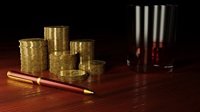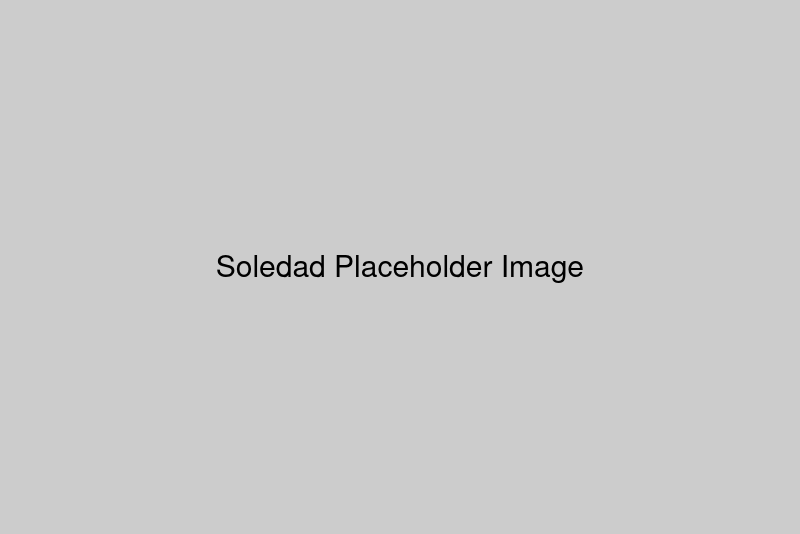Question:
I am thinking of doing some research projects in certain cancers (liver cancer) one of whose risk factors is alcohol or obesity. What do you think are the Islamic injunctions on raising money for the research from alcohol companies? They have an ethical imperative because they cause these cancers but would it be wrong for me to use their profits to fund research?
Radiation and or surgery is often an effective cost effective treatment for it but can’t do good research to prove without funding. Pharmaceutical companies sell a product and can often get funding for treatments that may not be best.
Answer:
In the Name of Allāh, the Most Gracious, the Most Merciful.
As-salāmu ʿalaykum wa-raḥmatullāhi wa-barakātuh.
The money earned from the sale of alcohol is ḥarām and is prohibited to use for one’s benefit.[1] Regardless of whether the research conducted utilizing these funds leads to new discoveries, you would have benefited from them because your employment is directly tied to conducting research which is tied to receiving funding. Additionally, stating that the companies have an “ethical imperative” to fund research is based on faulty logic. If findings reveal that alcohol does not cause cancer, what ethical imperative do they have?
That being said, the ruling will differ based on who the researcher receives the funding from.
- Taking research funding directly from the alcohol companies is prohibited.[2]
- If the government collects the funds from the alcohol companies, the funds would technically be permissible to use.
This is because the government collects money from various sources and mixes it together. It then allocates funds towards different causes including schools, research, and public works.[3] In addition to this allocation being something done on paper and the actual revenue generated from alcohol sales not reaching the researcher, the government serves as a sufficient barrier between the alcohol companies and the researcher. By the time the funding reaches the researcher, it would be considered a grant from the government, not the alcohol companies.
And Allāh Taʿālā Knows Best
Muftī Mohammed Wahaajuddin
Farmington Hills, Michigan, USA
Checked and Approved by:
Muftī Faisal bin Abdul Hamīd al-Mahmūdī
Darul Iftaa Canada (www.fatwa.ca)
—
الجوهرة النيرة، كتاب البيوع، ج ٣ ص٧٢-٧٣، دار السلام، ت: سائد بكداش
قوله: (إذا كان أحد العوضين، أو كلاهما محرماً، فالبيع فاسد): أي باطل، (كالبيع بالميتة، أو بالدم، أو بالخنزير، أو بالخمر) … والباطل: لا يفيد ملك التصرف… أوما بيع الخمر، والخنزير: إن كان بالدراهم والدنانير: فالبيع باطل.
فتح باب العناية، كتاب البيع، فصل في البيع الصحيح، والباطل، والفاسد، والمكروه، ج٢ ص٤٨٠، دار الكتب العلمية، الطبعة الثانية
(و) بطل (بيع مال غير متقوم) في حق الإسلام (كالخمر والخنزير بالثمن) وهو الدراهم والدنانير حالا أو مؤجلا، لأن الدراهم والدنانير غير مقصودة، وإنما هي وسائل. فإذا كانت عوضا لغير المتقوم كان غير المتقوم هو المقصود، وفي ذلك إعزاز له، وقد أمر الشارع بإهانته. وكذا إذا باعهما بما ثبت في الذمة من مكيل أو موزون. وأما لو باعهما بالعرض ، فالبيع فاسد لعدم تعينهما مبيعين، وسيأتي.والفرق بين الباطل والفاسد: أن الباطل هو الذي لا يكون صحيحا بأصله وذلك لفوات ركنه، فلا يفيد الملك أصلا.
الاختيار، كتاب البيوع، باب بيع الفاسد، ج١ ص٢٧٥، مكتبة العمرية
قال: (والباطل لا يفيد الملك) لأن الباطل هو الخالي عن العوض والفائدة.
(ويكون أمانة في يده) يهلك بغير شيء، وهذا عند أبي حنيفة وعندهما يهلك بالقيمة لأن البائع ما رضي بقبضه مجانا، وله أنه لما باع بما ليس بمال وأمره بقبضه فقد رضي بقبضه بغير بدل مالي فلا يضمن كالمودع.
قال: (وبيع الميتة والدم والخمر والخنزير والحر وأم الولد والمدبر، والجمع بين حر وعبد، وميتة وذكية باطل) أما الميتة والدم والحر فلأنها ليست بمال، والبيع والتمليك مال بمال، وأما الخمر والخنزير فكذلك لأنهما ليسا بمال في حقنا.
فقه البيوع على المذاهب الأربعة، فصل ٤٧٦: القسم الأول ما كانا محرماً على المرء لكونه ملكاً للغير، ج٢ ص١٠٠٧، مكتبة معارف القرآن
نعبر عن جميع العقود الباطلة فيما يأتي بالمغصوب، ولذي يقبض هذا المال الحرام بالغصب. وذلك لسهولة التعبير. ويشمل هذا التعبير كل مال حرام لا يملكه المرء في الشرع، سواء كان غصباً، أو سرقةً، أو رشوةً، أو رباً في القرض، أو مأخوذاً ببيع الباطل.
وإنه حرام للغاصب الانتفاع به، أو التصرف فيه، فيجب عليه أن يرده إلى مالكه، أو إلى وارثه بعد وفاته، وإن لم يمكن ذلك لعدم معرفة المالك أو وارثه، أو لتعذر الرد عليه لسبب من الأسباب، وجب عليه التخلص منه بتصدقه عنه من غير نية ثواب الصدقة لنفسه. وهذا الحكم عام سواء أكان المغصوب عرضاً أم نقداً، لأن النقود تتعين في الغصوب، حتى عند الحنفية الذين يقولون بعدم تعين النقود، كما مر تحقيقه. ثم إن كان المغصوب قائماً عند الغاصب بعينه، تتعدى حرمته إلى من يأخذه من الغاصب شراءً أو هبةً أو إرثاً، وهو يعلم أنه مغصوب.
فقه البيوع على المذاهب الأربعة، فصل ٤٧٧: معنى قولهم الحرمة لا تتعدى إلى ذمتين، ج٢ ص١٠٠٧، مكتبة معارف القرآن
وما ورد في كلام بعض الفقهاء الحنفية أن الحرمة لا تتعدى إلى ذمتين، فهو محمول على ما إذا لم يعلم بذلك، أو إذا لم يعلم الآخذ أن هذا المال حرام غير مملوك للمعطي. وكذلك الصحيح أنه لا يحل للورثة إذا علموا أنه حرام، سواء أعلموا أربابه، أم لم يعلموا. فإن علموا ردوه إلى أربابه، وإن لم يعلموا تصدقوا به.
[3] https://www.michiganlottery.com/about/where-the-money-goes
“What other sources contribute to the School Aid Fund?
In addition to the Michigan Lottery, contributions to the School Aid Fund are made by state sales and use tax, earmarked income tax, state education property tax, some federal funds, as well as cigarette, liquor and other taxes.”
https://www.senate.michigan.gov/sfa/departments/datacharts/dck12_schoolfundingcomprehensive.pdf
https://www.bridgemi.com/talent-education/reader-faq-does-michigan-lottery-money-really-go-schools
“Once lottery money is in the School Aid Fund, it becomes part of the larger public education pot ‒ a small part, about 7.5 percent, but a part.
“Once the dollars get into the School Aid Fund, they’re all commingled and you can’t tell the ‘green’ dollars from the State Education Tax [the money raised from property taxes instituted by Prop A] from the ‘orange’ lottery dollars,” Jim Stansell, senior economist for economic/revenue forecast and tax analysis at the nonpartisan Michigan House Fiscal Agency, told Bridge.”




